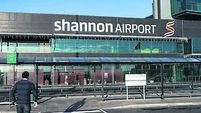Bombings continue after Baghdad's deadliest day
A suicide bomber killed sixteen policemen in Baghdad today, a day after the capital suffered its bloodiest day as US troops and insurgents clashed in the troubled western town of Ramadi.
More than a dozen co-ordinated bombings ripped through Baghdad yesterday, killing 160 people and wounding 570. Many of the victims were day labourers lured by a suicide attacker posing as an employer.














